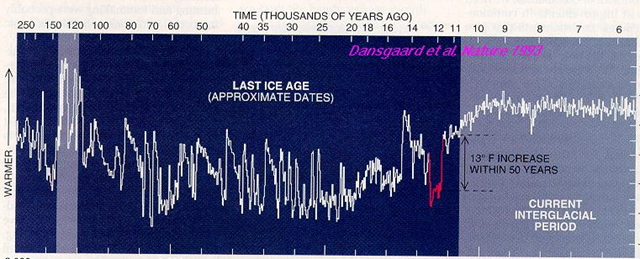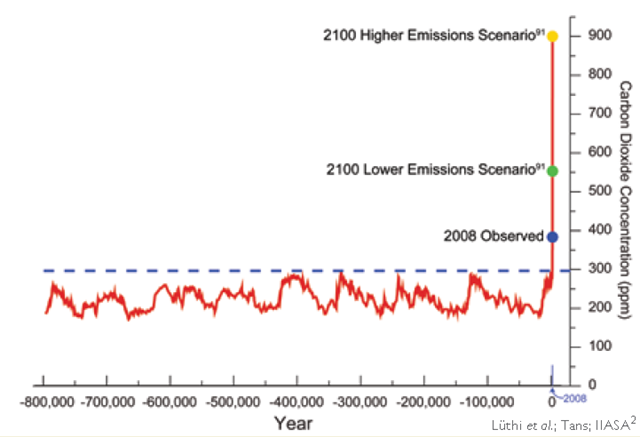Economist Stefan Karlsson: ‘Would global warming be so bad?’
 Free-market economist Stefan Karlsson asks the question on his blog and gets reposted by the usually level-headed Christian Science Monitor. Of course, for anybody even slightly acquainted with climate science, the answer is an obvious, ”Yes, and how.” Since Karlsson doesn’t allow comments on his blog, Desdemona is forced to reply here. Karlsson asks:
Free-market economist Stefan Karlsson asks the question on his blog and gets reposted by the usually level-headed Christian Science Monitor. Of course, for anybody even slightly acquainted with climate science, the answer is an obvious, ”Yes, and how.” Since Karlsson doesn’t allow comments on his blog, Desdemona is forced to reply here. Karlsson asks:
What has always troubled me the most with the view that we need to stop “climate change” in the form of “global warming” is the idea that it would be bad if the Earth became warmer. Sure, that could be negative in some areas for some reasons, but it would also be beneficial in other areas for other reasons. Suppose for example that Antarctica, or at least parts of it, would become habitable due to a warmer climate, wouldn’t that be a good thing that could possibly outweigh possible problems elsewhere?
First, the particulars. For Antarctica to become habitable, an immense volume of ice would need to melt away to expose bedrock, on the order of 30,000,000 km3. That water would go somewhere: into the oceans. The resulting sea level rise would wipe out coastal cities worldwide. If Karlsson proposes that losing all of that built capital will be offset by constructing new cities in Antarctica, Desdemona replies with Bastiat’s broken window. Karlsson asks another question:
So what is there to say that the pre-industrial era climate is really the optimal climate? That the benefits of a possible warmer climates wouldn’t outweigh the disadvantages? I have asked that many times to Al Gore supporters and either gotten no answer at all, or some list of alleged (and exaggerated) disadvantages that completely overlooked the benefits.
Setting aside Karlsson’s characterization of Gore supporters, Desdemona answers by asking another question: the human species is about 200,000 years old – why did agricultural civilization appear only in the last 9,000 years or so? Climate. Agriculture became possible only during the remarkably stable climate of the Holocene epoch, which began at the end of the last ice age, about 12,000 years ago. Ice core data show that before the Holocene, climate variability was much greater, almost certainly precluding the predictable weather that’s necessary for large-scale agriculture. The Holocene truly was the “optimal climate” and was a prerequisite for human civilization.  Now, to the larger issue. The question isn’t really about the final equilibrium temperature, it’s about the rate of change, which is unprecedented in the entire history of the planet. Atmospheric and ocean chemistry are changing more rapidly than at any time in the past 65 million years at least.
Now, to the larger issue. The question isn’t really about the final equilibrium temperature, it’s about the rate of change, which is unprecedented in the entire history of the planet. Atmospheric and ocean chemistry are changing more rapidly than at any time in the past 65 million years at least.  It’s these immense rates of change that are dismantling the great biogeochemical cycles of the planet. And the market has no substitutes for those.
It’s these immense rates of change that are dismantling the great biogeochemical cycles of the planet. And the market has no substitutes for those.
Yeah. Who cares if Manhattan goes underwater? People can swim…
My own metaphor about climate change:
http://upsideofinertia.wordpress.com/2010/12/24/a-graph-to-ruin-your-christmas/
I was puzzled when I saw that on the Christian Science Monitor – it now seems that they are publishing poorly written pieces by people with no knowledge of the subject they happen to be writing on. All one has to do is make things abstract and simple, and then manipulate the abstractions to say something striking.
I'm going to submit an editorial that asks if theft is really so bad – after all, theft is just the movement of money, and money moves all the time… see? Theft is not so bad!